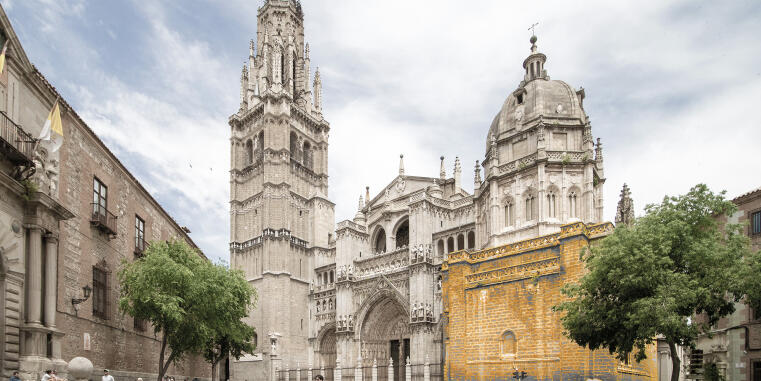

The Mozarabs of Toledo as actors between imperial kingship, the Roman church and autochthonous Christian tradition (11th-14th century)
In the 11th and 12th centuries, Spain was caught in the crosshairs of various imperial claims of Christian and Islamic provenance. The multi-religious and multi-cultural contact zone was concentrated in Toledo, which was therefore chosen as the area of investigation for the subproject.
The city, which had been under Castilian rule since 1085, was predominantly inhabited by an Arabic-speaking population - who also spoke the Romance language - consisting of Muslims (known as Mudejars under Christian rule), Jews and Christians (known as Mozarabs). In the course of the conquest, Castilians were added, as well as the French, who could perhaps be described as the actual imperial elite. French and Latin were the languages of rule, with Arabic and Romance as everyday languages, which also fulfilled certain 'public' functions in certain areas of local administration, jurisdiction and real estate transactions.
The initial hypothesis is that foreignness came into play in the confrontation between the Roman and Old Spanish rites, in the regulations of privileges (fueros) for the interaction between the different groups and possibly also in translations on the real estate market, where the Arabic language was only displaced by the Romance vernacular at a late stage.
Administration appeared in Toledo in the form of the implantation of Castilian and Roman ecclesiastical elites, who had to interact at various levels with the local, autochthonous population of different denominations in order to assert and consolidate their position. After the conquest, a new functional and administrative elite emerged in the form of the Christian Arabic-speaking notary's office and the double alcalde, which were only just beginning to develop.
The case of Toledo allows micro-historical access to the tradition of a society that was characterized by highly complex configurations of order that were in a state of constant change. Various, quite contradictory actions, which can be seen as examples of imperial meaning-making (from the papal, Castilian-imperial, Almoravid and Almohad sides), were confronted with religiously, linguistically and legally constituted groups that reacted to such initiatives and in doing so offered resistance that ran counter to imperial ambitions, for example through emigration.
Taking this complex situation as a starting point, the sub-project asks how people who acted as representatives of xenocratic ruling positions behaved towards members of different autochthonous and immigrant groups; how cultural practices, particularly of an administrative nature, changed and how the cultural profile of the groups modified over time.

